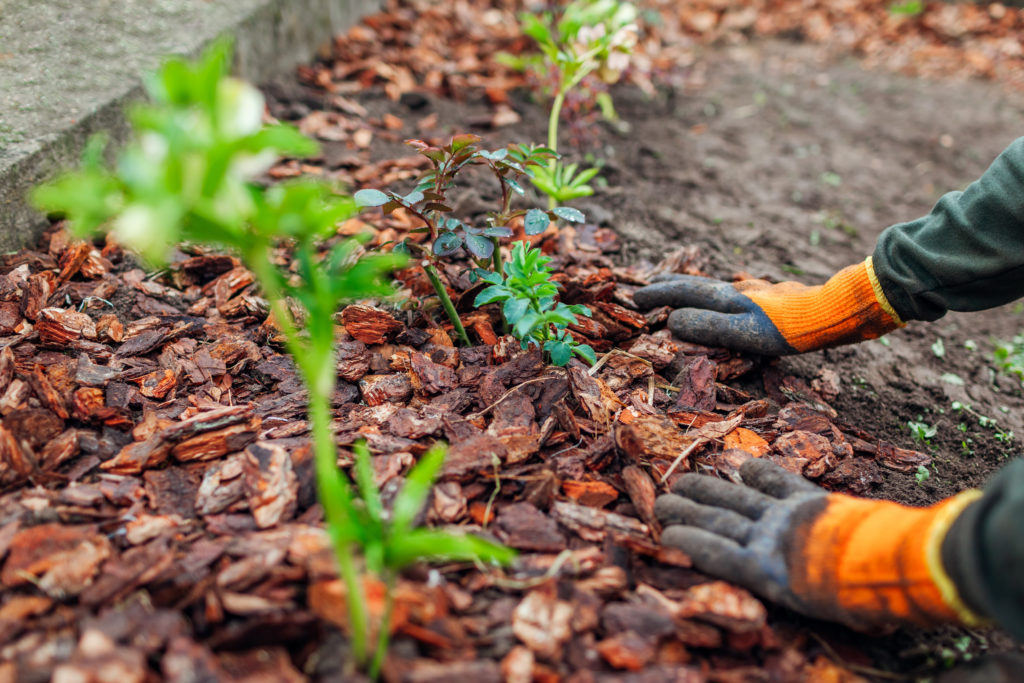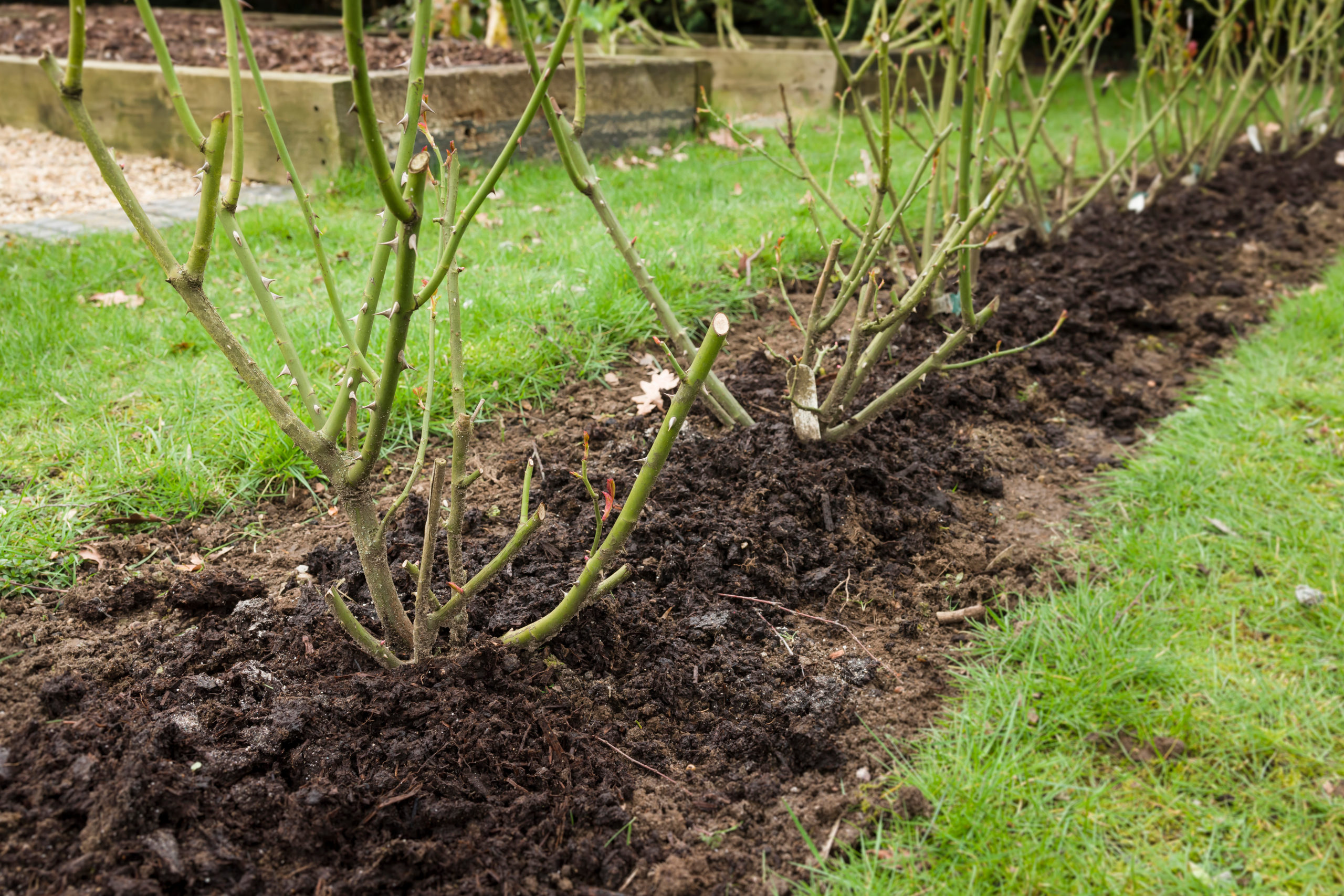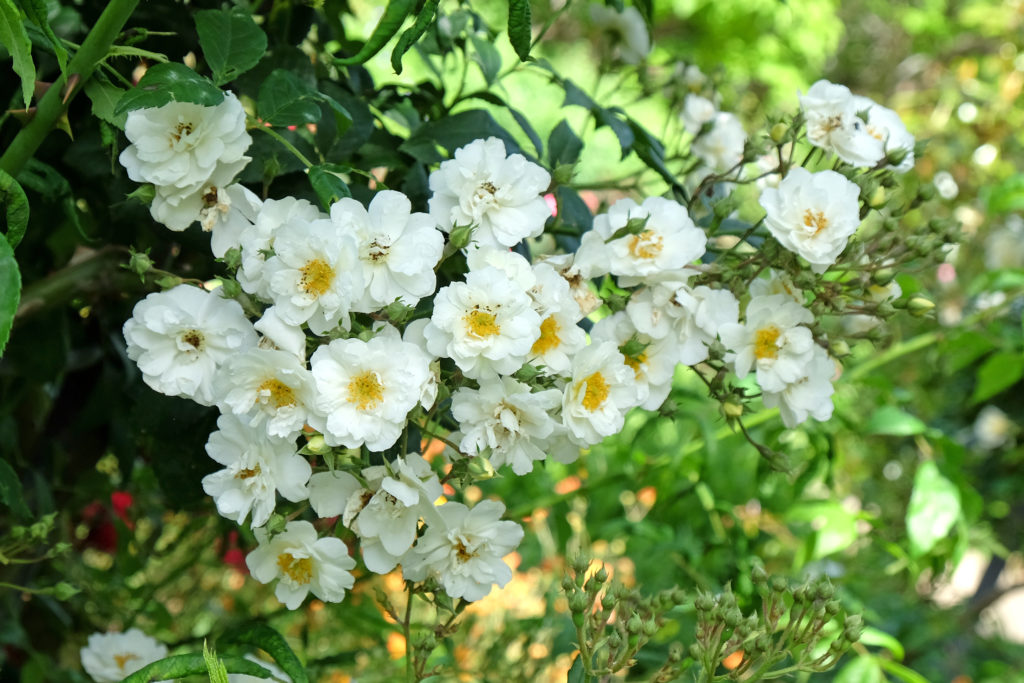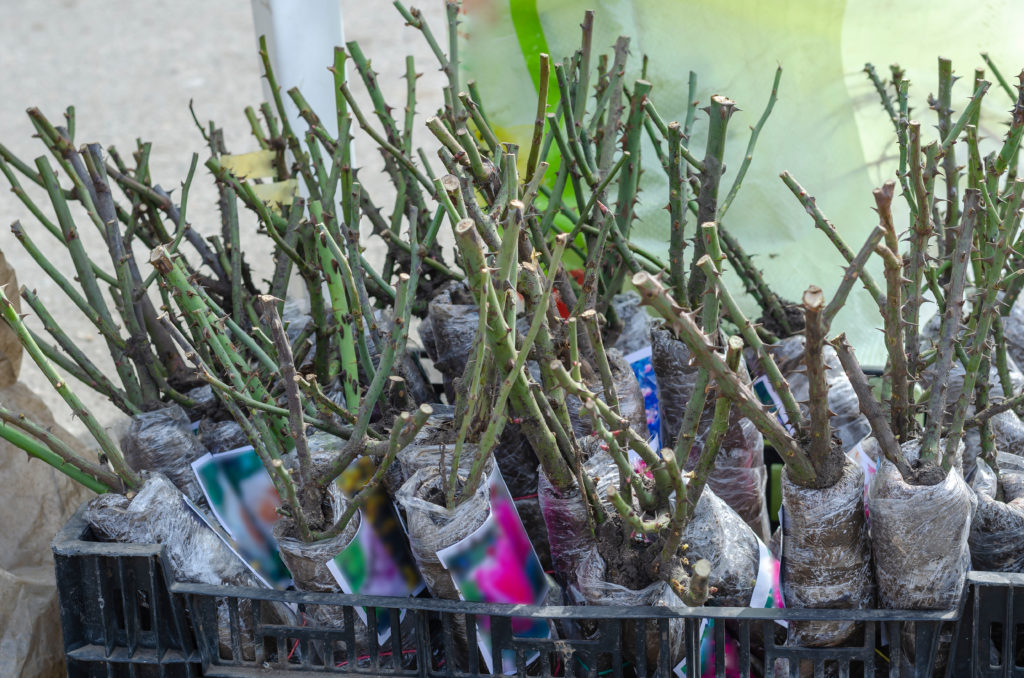Mulching is an important practice for maintaining roses’ health and vitality. By applying a protective layer of mulch around the base of the plant, gardeners can improve soil conditions, retain moisture, suppress weeds, and regulate soil temperature. Proper mulching ensures that roses remain strong, resilient, and capable of producing beautiful blooms throughout the growing season.
Mulch acts as a barrier that helps maintain soil moisture by reducing evaporation. Roses require consistent moisture, and mulching helps to keep the soil hydrated, reducing the need for frequent watering. Additionally, mulch prevents weeds from growing around the base of the plant, minimizing competition for nutrients and reducing the risk of disease.

The best time to apply mulch is in early spring after the soil has warmed up but before the heat of summer begins. Mulch should also be refreshed in late autumn to provide insulation against winter cold. When applying mulch, a layer of two to three inches is ideal. Applying too much mulch can suffocate the roots, while too little may not provide adequate protection.
There are several types of mulch that can be used for roses. Organic mulches, such as bark, wood chips, compost, straw, and shredded leaves, decompose over time and enrich the soil with nutrients. These materials improve soil structure, promote beneficial microbial activity, and contribute to overall plant health. Inorganic mulches, such as gravel or landscape fabric, do not break down but can still help with moisture retention and weed suppression. However, organic mulches are generally preferred for roses due to their additional soil-enhancing benefits.
When mulching, it is important to leave a small gap around the base of the rose bush to prevent moisture buildup and potential rot. Mulch should be spread evenly around the plant, extending outward at least 30cm from the base of the rose. This helps protect the root zone while allowing air circulation to prevent fungal growth.
Maintaining mulch throughout the growing season ensures that roses continue to thrive. Checking periodically for signs of decomposition and refreshing the mulch as needed will help maintain its effectiveness. By incorporating proper mulching practices, gardeners can create an optimal environment for their roses, leading to healthier plants and more vibrant blooms year after year.


